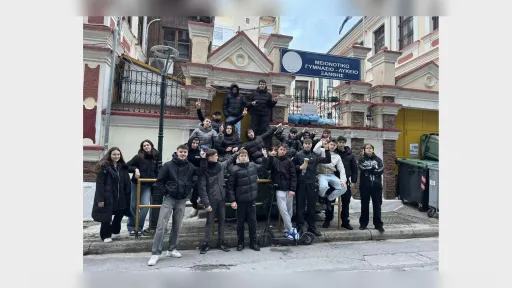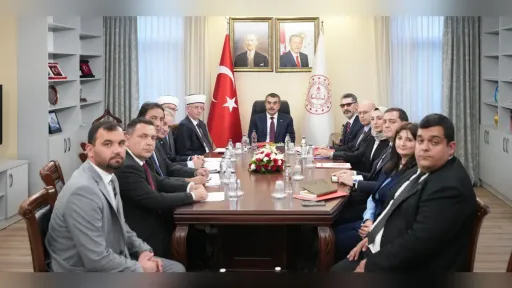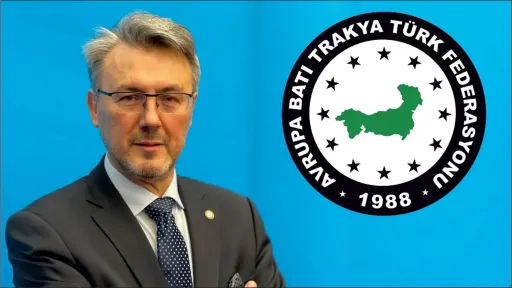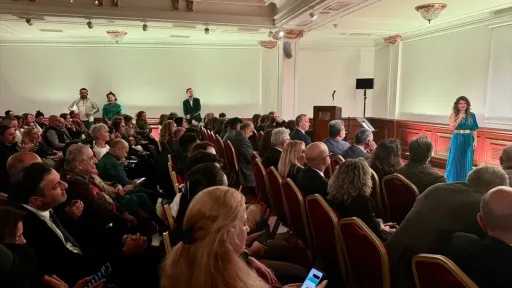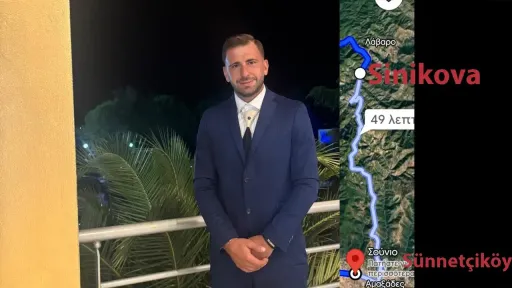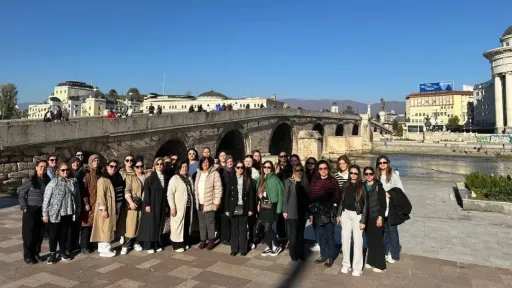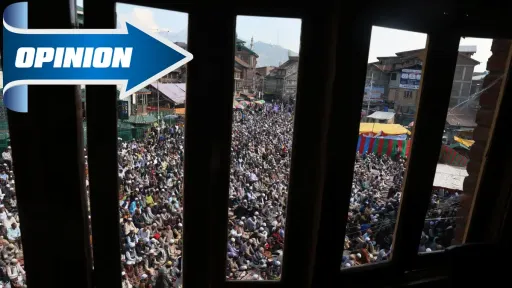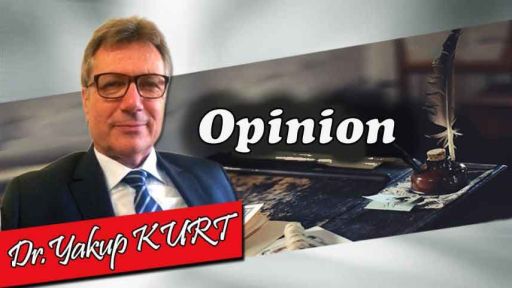An assessment on Minority Schools in Istanbul and Western Thrace in light of recent developments and writings

At the beginning of my article, I would like to state that both I myself and my children studied in the Turkish Minority schools in Western Thrace, and that today one of my children is still continuing education at the İskeçe Turkish Minority Secondary School. In addition, as a parent passionate about education who has served as a school committee member both at İskeçe Central Turkish Primary School and at the İskeçe Turkish Minority Secondary School and High School, I emphasize that I am someone who has felt deep in my bones the difficulties experienced in the Turkish Minority schools in Western Thrace.
Since I used the expressions “Turkish Minority,” “İskeçe Central Turkish Primary School” and “İskeçe Turkish Minority Secondary School and High School” at the very beginning of my article, I may be criticized by many “anti-Turkish Minority” people in Greece or may be labeled as “anti-Greek.” The main reason for this, as well as the problems faced today by the Turks of Western Thrace in Greece, is the denial of Turkish identity at all levels by Greece.
As long as the denial of “Turkish” identity in Greece continues and this mentality does not change, I am one of those who believe that no positive steps can be taken regarding the problems experienced today by the Turks of Western Thrace. Because when the existence of a community is denied, no realistic solutions can be produced for that community’s problems. The most vivid example of this today is the Turks of Western Thrace.
Let us now come to the main issue indicated in the title of our article.
Unfortunately, in recent years, the Turks of Western Thrace have always begun new academic years with problems. The main agenda item of recent years has been the Turkish Minority Primary Schools closed down every year under the pretext of lack of students. In addition, I will also try to touch upon, within my article as occasion arises, the chain of problems experienced and still ongoing in the İskeçe Turkish Minority Secondary School and High School.
Let us now consider the recent developments concerning Turkish Minority Education in Western Thrace. Of course, the first item on the agenda this year was the non-reopening of the Mizanlı Turkish Minority Primary School, which had been closed down by Greek authorities under the pretext of lack of students even though it had reached a sufficient number of students. With the organization of the Western Thrace Turkish Minority Consultative Committee, parents and Turkish Minority institutions held a democratic protest demonstration in front of the Mizanlı Turkish Minority Primary School on Thursday, 11 September.
On the same day, our country Greece’s Minister of Education, Religious Affairs and Sports, Sofia Zaharaki, visited the İskeçe Turkish Minority Secondary School and High School. Let us also note that on that same day, due to the opening of the new academic year, Zaharaki visited many schools in İskeçe. The School Committee welcomed Zaharaki at the entrance of the school and outside the school, and thanked her for the maintenance works carried out at the school. The School Committee handed Minister Zaharaki a written statement concerning the difficulties faced at the school and reiterated the need for a new school building. Although the Committee said they had to meet the Minister outside the school since they were not allowed into the school under the instructions of the competent authorities, they were also kept outside during the Minister’s visit.
When it comes to the İskeçe Turkish Minority Secondary School and High School, we knew that the Greek State had carried out some maintenance and repair works in this historic building—which had been a 200-year-old tobacco warehouse converted into a school—with an initially determined budget of 35,000 euros. However, let me draw your attention to one particular point: during the maintenance works carried out over the summer, the School Committee was not allowed into the building. In order to prevent the Committee’s entry into the school, some individuals of unclear status and position were placed at the school’s gate. Even today, the entry of the School Committee into the school is still prevented. For this purpose, a camera was installed overlooking the main entrance gate of the school. The manual opening mechanism of the school gate from the inside was disabled. At present, the main gate of the school can only be opened from outside with a key and from inside by pressing the button located in the principal’s office. God forbid, if an emergency requiring urgent exit were to occur inside the school, since the gate cannot be opened from inside, someone would have to climb to the upper floor of the adjacent building where the principal’s office is located and press the automatic opening button.
During the summer maintenance works, all control was carried out by Ms. Eva, who had served for many years as the school’s deputy principal. After the schools opened and our children started attending, we realized that the maintenance works carried out were far above the initially determined 35,000 euros, and that a comprehensive maintenance had been done. Hopefully, at the first parents’ meeting, we will have the opportunity to closely see the works that were done. We sincerely thank them in advance for the works carried out.
Speaking of Ms. Eva, I would like to share with you an anecdote I experienced with her. During a meeting held between parents and the school administration at a time when the school faced the problem of morning/afternoon shifts, Ms. Eva came into the classroom and, while introducing herself, said: “I am the deputy principal of this school and I represent the Greek State in this school.” I asked her, “Is there also someone in this school representing another country?” She then gave me a meaningful look with her eyes but did not answer. In the following years, during my time serving as a member of the school committee, I had to work closely with her. Despite many disagreements, we strived with patience to work together for the better functioning of the school. If I had not mentioned Ms. Eva in this article, I would have been unfair to her. Of course, bringing her up in this way will be met with appreciation by her superiors.
Now let us also look at the Istanbul side of the matter. On 13 September, the newspaper Kathimerini published a news article with the headline “The lamp of the school will continue to burn” and the sub-headline “Fener (Great) Greek School: No new students enrolled in the first grade of middle school.” At the end of the article, the piece “Steps taken for the modernization of compatriot educational institutions” by journalist Manolis Kostidis, a well-known member of the Non-Muslim Minority in Istanbul, was also included. Notice that I used the expression “Non-Muslim Minority member.” Because Greece, by constantly denying the Turkish presence in Western Thrace, never stops repeating the refrain “There are no Turks in Greece, there is a Muslim Minority,” by referring to the expressions in Lausanne. In both discourse and practice, Greece never compromises on this strategy.
Our motherland and guarantor, the Republic of Türkiye, does not interfere with the ethnic origins of the Christian Orthodox Greeks in Istanbul. It does not interfere with their educational institutions. It does not interfere with their religious institutions, foundations, and associations. On the contrary, it provides the necessary facilities for these institutions to function, as required by Lausanne and international treaties and agreements signed between the two countries. I am not the one saying this. Both the representatives of these institutions and Manolis Kostidis, in his article whose Turkish translation was published at the end of the related news in our newspaper, say this.
Now let us take a look at the main points mentioned in the article published in Kathimerini. The main starting point of the article is that no students enrolled in the first grade of the middle school of the Greek School in Fener under the patronage of the Patriarchate this year. However, in the main headline, the statement of Greece’s Consul General in Istanbul is quoted: “The lamp of the school will continue to burn.” When we look at the content of the article, we see information about the general situation of the Greek schools in Istanbul, the number of students, the increase in the number of students in the schools on Gökçeada, the total number of students in Istanbul and Gökçeada schools being 302, the repair and maintenance works carried out at the schools, and the views of school principals, Patriarch Bartholomew, and the Greek Consul General in Istanbul regarding the future of these educational institutions.
At the end of the article, there is Kostidis’ piece. Kostidis begins his article with the emphasis that he himself is one of the compatriots (Greeks) who personally experienced the shrinking of the minority population as a result of developments affecting minorities in both countries due to problems in Greek-Turkish relations in the past.
Today, when we as Turks of Western Thrace speak of the closure of our schools and the fact that only 83 Turkish Minority schools exist today, we are always confronted with the issue of “the number of Greek schools in Türkiye and the remaining population there.”
As stated in the article and in Kostidis’ piece, in Istanbul and Gökçeada, among the approximately 2,000 Greek Orthodox Minority population, there are about 300 students in their schools. If we compare population and student numbers, then for the Turks of Western Thrace, whose population we estimate at at least 120,000 today, there should have been 18,000 students in Minority schools and enough schools to accommodate these students.
If research were to be conducted today, perhaps the number of students in primary and secondary level Turkish Minority schools in Western Thrace would be around 15,000 to 18,000. However, although we do not have official data, we can estimate that today the number of students in Turkish Minority schools in Western Thrace is approximately 5,000. The remaining 10,000 to 13,000 students unfortunately attend state schools today. Although there are different reasons for this, the main one is the systematic assimilation policies carried out by the Greek state at every stage.
For example, children of Turkish Minority members in Western Thrace at kindergarten level are obliged to attend state kindergartens where only Greek is spoken. Greece does not take into account the demand of the Turks of Western Thrace for bilingual Greek-Turkish kindergartens.
Over the years, Greece has reduced the number of Turkish Minority schools, which used to be over 300 in the past, to 83. There are different reasons for these closures. The main ones are the villages that emptied due to economy and migration, and schools closed by Greece under the pretext of lack of students.
Today, of the remaining 83 Turkish Minority schools, only two are at the secondary and high school level: the Turkish Minority Secondary School and High School in İskeçe, and the Celal Bayar Secondary School and High School in Gümülcine. When looking at the population in these provinces, it is clear that in İskeçe there should be at least 4, in Rodopi at least 5, and in Evros at least 1 Turkish Minority secondary school and high school. However, Greece, through systematic methods, is doing everything it can to reduce the number of students at the Turkish Minority Secondary School and High School in İskeçe and Gümülcine. It provides every facility for Turkish Minority students to attend state schools. In the last 5 years, the number of students at the İskeçe Minority Secondary School and High School has seriously decreased, from about 750 to unfortunately under 450 today. On the other hand, there is no Turkish Minority school at the secondary and high school level in the province of Evros.
Several points mentioned by our colleague Manolis Kostidis, a member of the Greek Orthodox Minority in Istanbul, are particularly noteworthy. In his article, Kostidis says that the political climate between the two countries is positive nowadays, that the Turkish government does not cause problems and provides support regarding education, and that the Greek government, especially through the Greek Consulate, is aware of this issue and deals with it on a daily basis. Kostidis also especially emphasizes that Turkish authorities generally cooperate with the school administrators and Greek authorities, help them, and even provide every facility in maintenance works. Not only Kostidis but also many minority members in Türkiye mention in recent years the openings and facilities provided by Türkiye to different religious and ethnic minority members in the country. Nobody can deny today the openings Türkiye has made and the facilities it has provided to correct past mistakes committed against minorities within its borders, which it sincerely acknowledges.
However, despite all of Türkiye’s well-intentioned approaches, unfortunately our country Greece continues its injustices against the Turks of Western Thrace. When these injustices are expressed at high levels, the common attitude of some circles is: “If you don’t like it, go to Türkiye.”
It must be underlined that in its practices toward the Turks of Western Thrace, the Greek state never takes into account the demands of Turkish Minority members and representatives, never approaches dialogue with the Turkish Minority, and takes decisions regarding the Turkish Minority completely unilaterally. While doing all this, it does not hesitate to shamelessly declare that it always adheres to democracy, human rights, Lausanne, and bilateral agreements.
A few more points from Kostidis’ article should not go without mention. In the last part of his piece, Kostidis speaks of the Minority primary school in Mizanlı that was not reopened despite having reached the sufficient number of students, and expresses his sorrow over this situation. We thank him for his empathy. We also thank him separately for courageously voicing the facilities provided to them by Turkish authorities.
At the beginning of my article, I referred to Mr. Kostidis as a “Non-Muslim Minority member in Istanbul.” I deliberately did so to emphasize a point once again, and I did not use this expression in the rest of my article. Later, I used the expression “Greek Orthodox Minority member.” That is how it should be. For, denying a community’s ethnic identity for whatever reason is a vile act. We will never stoop to this vile situation.
In his piece, Kostidis states that the restoration project for the Zografeion High School building is being realized with the financial support of banks that are members of the Hellenic Bank Association and of Athanasios Martinos, and that this work is about to be completed. We know from earlier reports that this financial support by the Hellenic Bank Association amounted to 500,000 euros. Of course, we do not know by what methods this money was transferred to the Zografeion High School for its renovation, but what we do know is that Turkish authorities, in cooperation with Greek authorities, provided every facility. At this very point, we should also once again mention that the Greek State allocated 35,000 euros for the maintenance works of the İskeçe Turkish Minority Secondary School and High School, but after the works carried out, it became clear that the amount was far above 35,000. However, as we have repeatedly expressed at every opportunity, the İskeçe Turkish Minority Secondary School and High School needs a new building. Because the maintenance works carried out in a 200-year-old tobacco warehouse cannot go beyond making a 90-year-old grandmother look like an 80-year-old grandmother with makeup.
A DIFFICULT QUESTION
Speaking of the need for a new building for the İskeçe Turkish Minority Secondary School, if, like the 500,000 euros sent by the Hellenic Bank Association for the Zografeion High School, an aid of about 30 million euros were to be sent by the Banks Association in Türkiye or a similar institution for the construction of a new Turkish Minority Secondary School and High School in İskeçe—considering that compared to the approximately 2,000 population of one minority, another minority with about 60 times that population would need about 60 times that amount—would the Greek authorities, in cooperation with Türkiye, provide every facility and permit the construction of such a school? I think I have asked a very difficult question…
I apologize to all readers for having to touch upon too many details in my article, but one cannot explain these issues without going into detail like this.
To sum up, as members of the Turkish Minority of Western Thrace, we will continue to live in our country Greece with respect for all the requirements of democracy, as we have until today. We will continue to proclaim that we are Turkish. We will continue our struggle against those who deny our Turkish identity, within the framework of democratic rules. We will continue to work and push the communication channels with the Greek authorities of our country for the full implementation of the rights granted to us under Lausanne and the agreements and protocols signed between Türkiye and Greece.
We will not give up our Turkishness, nor our rights, nor the lands we live on, nor our homeland Greece, nor our Motherland Türkiye. Let this be known…
Stay safe and well.
